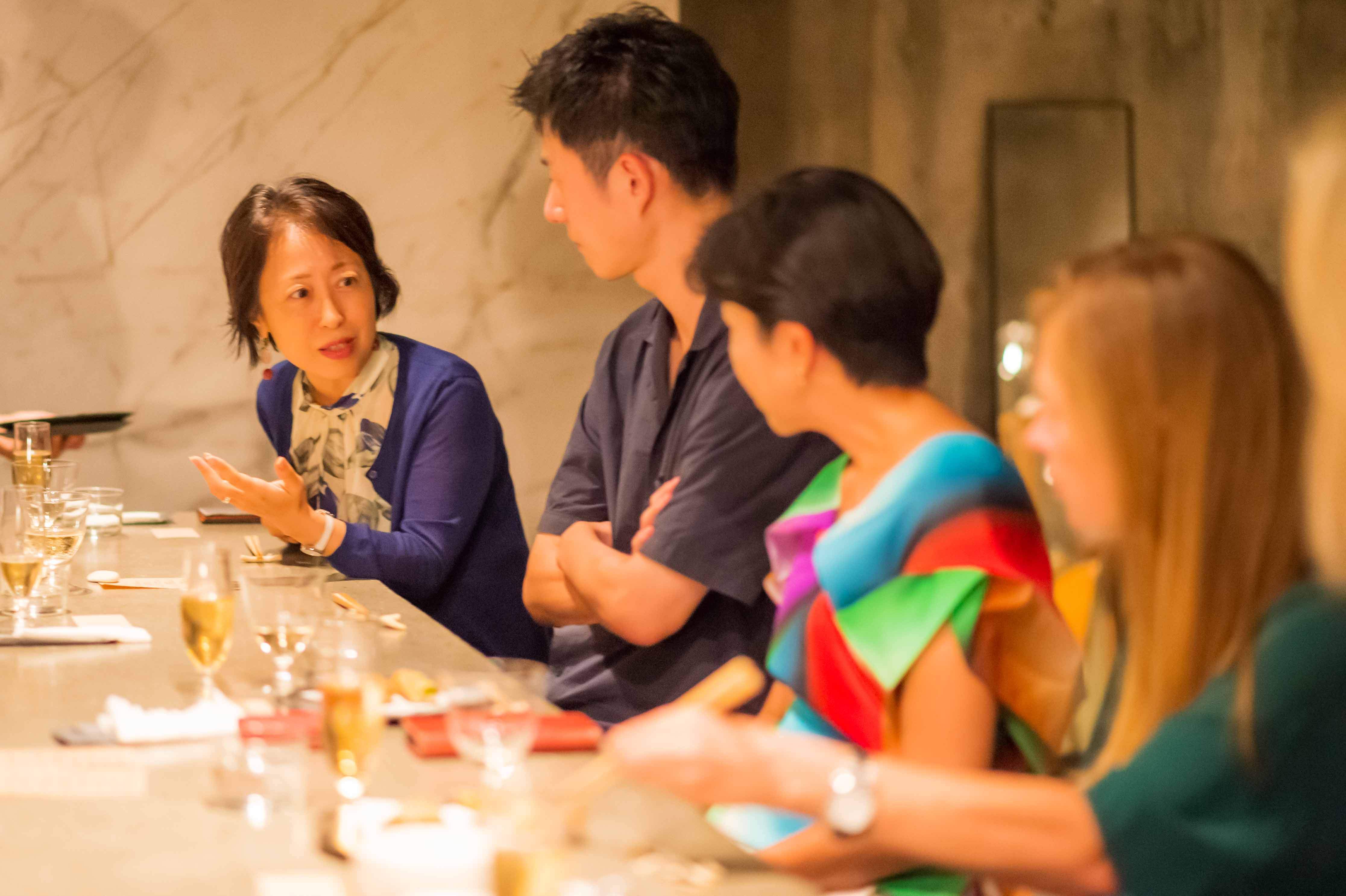Part four of five / Tokyo
Innovation Conversation
As women re-enter work after career breaks, what shapes their experience? This was the topic of the latest dinner held in Tokyo by The Adecco Group’s Innovation Foundation, Konfekt and Monocle.
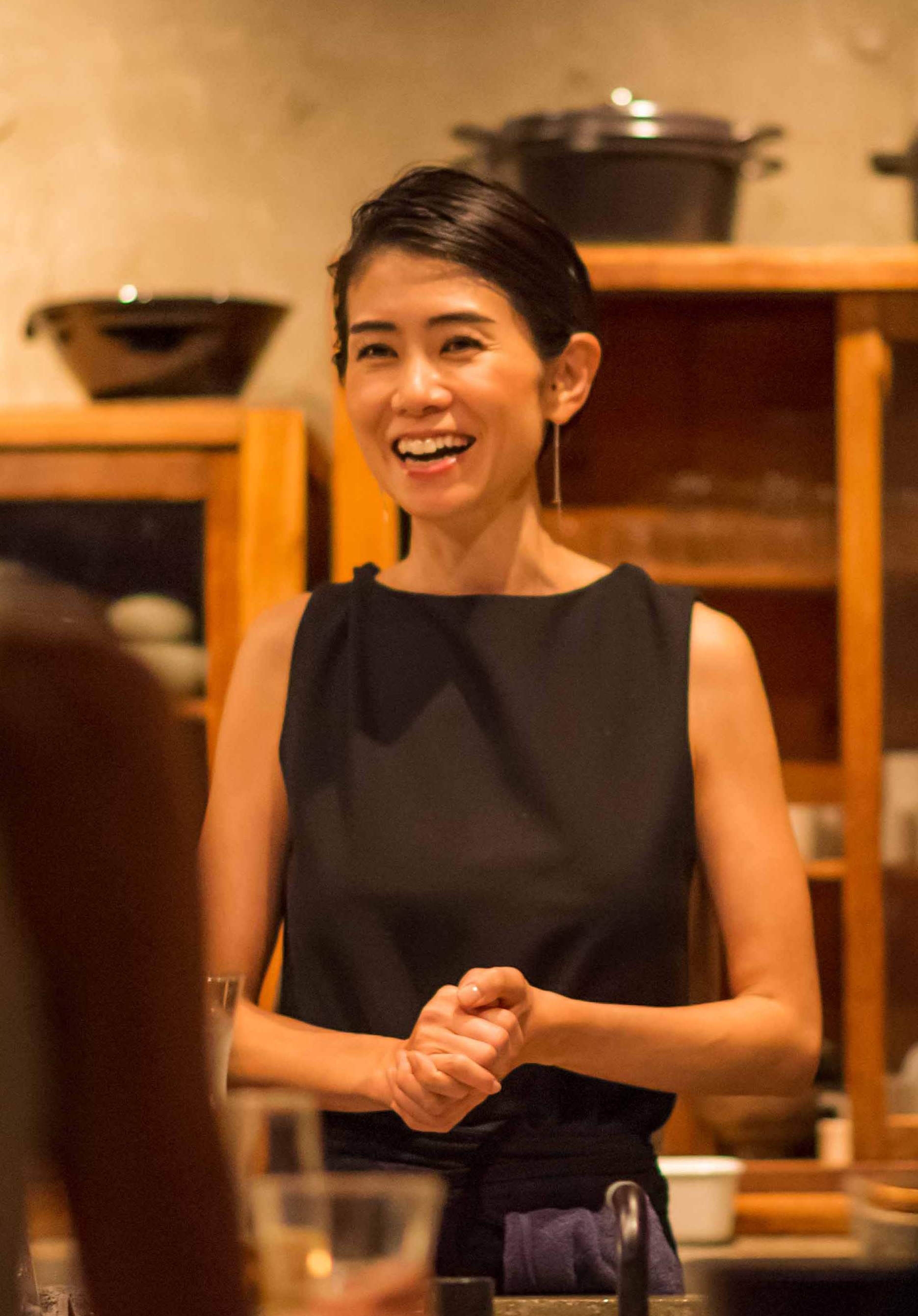
The Chef
Former fashion stylist Naoko Tanijiri started her Tokyo restaurant, Hitotema, seven years ago when she was pregnant with her son. Cooking has always been her passion and she modestly describes her style as “Japanese home cooking”. Her dishes make use of seasonal ingredients, mostly sourced from Japan. Tucked away on the third floor of a modern building designed by Tanijiri’s architect husband, Hitotema only opens one day a week. “It wasn’t easy to work and raise a child so I decided to work less and focus on my son,” says Tanijiri. A relentless multitasker, she has written two books, offers cookery lessons and also cooks in a children’s home.
The Menu
Seasonal smoothie with white wood-ear mushroom, pear, honey and ginger.
Sea-bream sashimi with turnip and yuzu.
Fig and gorgonzola spring rolls, and sardine and shiso spring rolls.
Baked warasa (yellowtail) with shiokoji (fermented seasoning).
Mapo tofu with mushrooms, homemade miso and leek.
Brown rice with taro.
Winter melon soup.
Sweet potato pudding with rum caramel.
Drinks
Domaine Frédéric Geschickt Crémant d’Alsace Brut.
Vinhos Aparte Classico 21W.
Domaine Stoeffler Gewürztraminer Kirchberg de Barr 2018.
Yamaoka Shuzo Zuikan Junmai Namagenshu Kimoto.
Hanahato Shuzo Kijoshu.
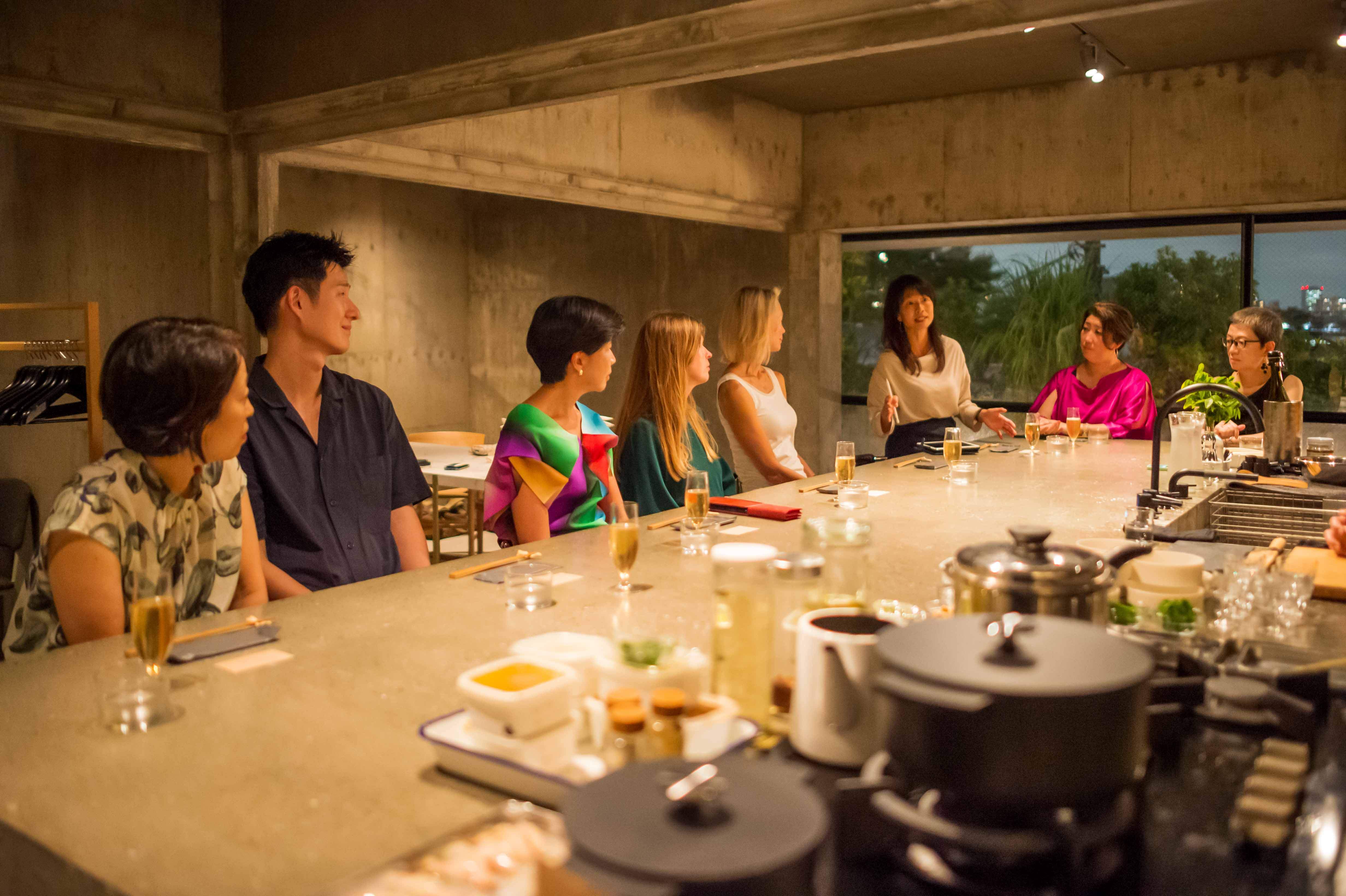
The Hosts
Cynthia Hansen
Managing director, Innovation Foundation
Cynthia leads the Adecco Group’s Innovation Foundation as a Social Innovation Lab on the future of work. innovationfoundation.net
Fiona Wilson
Asia editor, Monocle
Fiona lives in Tokyo and covers everything from food to business and politics.
The Speakers
Kathy Matsui
General partner, MPower Partners
Former Goldman Sachs Japan vice-chair who pioneered “Womenomics”, the idea that higher female labour participation can boost the economy.
Ari Horie
Founder and CEO, Women Startup Lab
Ari’s Silicon Valley accelerator works with women entrepreneurs in technology.
Cynthia Usui
Author and advocate for diversity
Cynthia has authored three Japanese books, including Eight Things Full-Time Housewives Should Do Before Getting a Job.
Yuta Oka
Co-founder of Azumi and CEO of Staple
As well as founding ryokan brand Azumi, Yuta is the founder of Staple, which works with locals to revitalise neighbourhoods.
Kyoko Altman
Business executive and board member of The Mekong Club
Having worked in media, tech and sustainable investing, Kyoko now aspires to break more glass ceilings by serving on Japanese boards.
Mari Miura
Political science professor, Sophia University
Mari played a key role in the passing of legislation promoting gender equality.
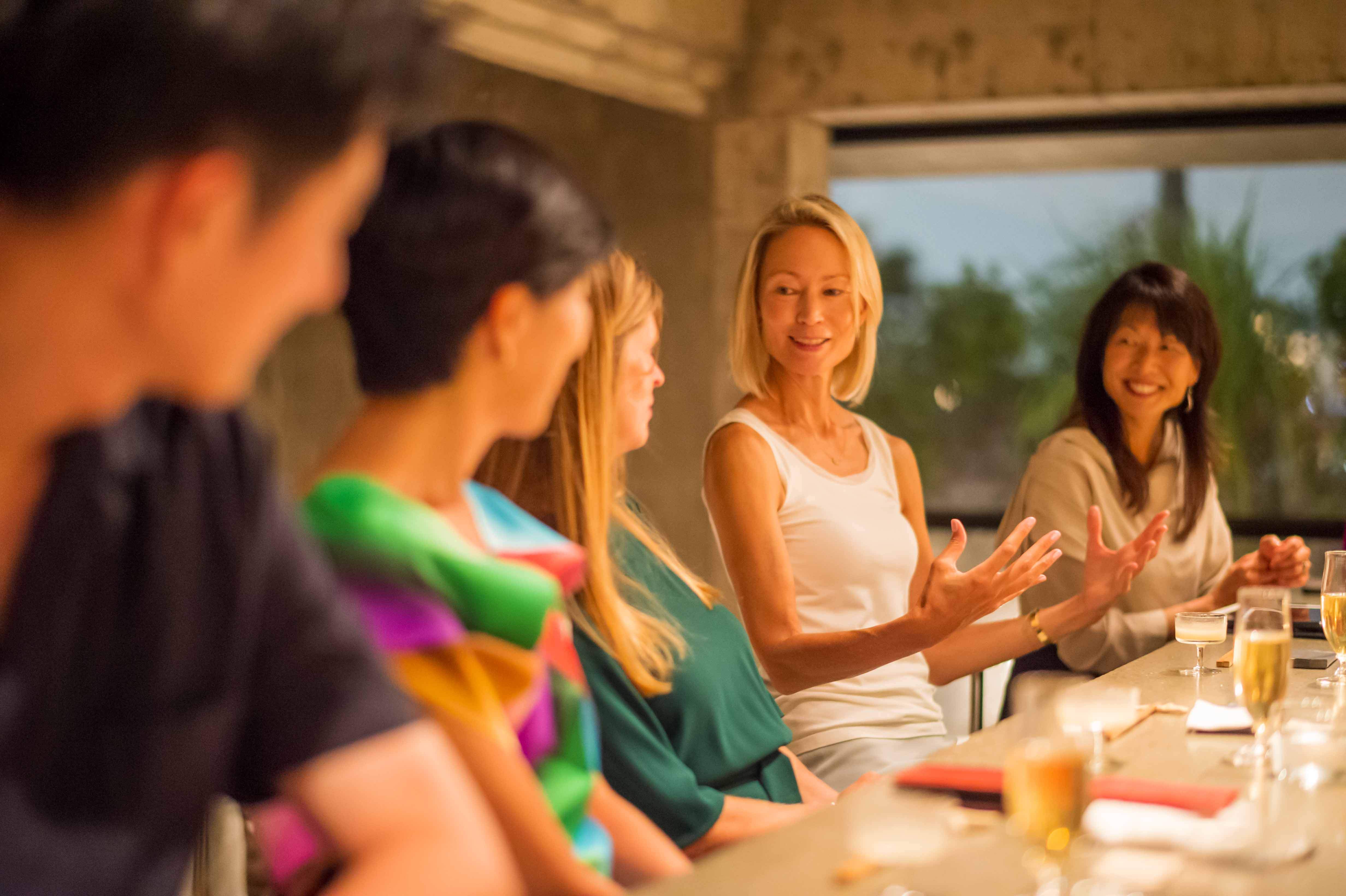

VISIBLE AND INVISIBLE CHALLENGES
Cynthia Hansen: Thank you all for coming. This is the fourth in a series of five dinners and tonight we will be exploring the topic of women returning to work – what makes it difficult for some and easy for others in different circumstances, and what the wider implications are for culture, society and the economy. We will look at how situations differ according to geography, culture and age, as well as other factors that affect women’s experience. Kathy, what challenges do you see in Japan? And is what women face here specific to the country or more universal?
Kathy: Historically, Japanese women would enter the workforce straight after school, work for a while, get married, start a family, then drop out; they would only go back after their children were in their teens. This is the so-called “M curve”. Was it because they weren’t allowed to work? No, it was usually by choice. But in traditional Japanese companies, where the performance-evaluation metrics tended to be based on seniority and time, it was hard for women to get ahead. But things have moved on. Up until coronavirus, Japan’s female labour participation rate actually soared to a record high of 71 per cent, surpassing those of both the US (66 per cent) and the European Union (62 per cent). However, though the numbers of women working are high, the quality of what they’re doing is still not ideal. Most are in part-time positions. And there’s still a dearth of women in leadership roles. Making opportunities to advance is the real challenge.

Cynthia Usui: I believe that these days any woman who wants to go back to work can do so. I’m talking from experience. I stayed at home for 17 years to look after my daughter and then went back to work at the age of 52 in 2011. The landscape back then was completely different. There was no labour shortage. I’m bilingual but I couldn’t get an interview with anyone except the Tokyo American Club, where my English skills were valued. The following year I went into the hotel industry at a time when it was booming. Fast-forward 10 years and the issue isn’t whether women can go back to work or not; it’s that they’re not able to advance. Japanese companies consistently evaluate people on seniority, not merit.
Kyoko: This relates back to how we think about skills. Many companies – and many women too – still view child rearing as something that isn’t valuable in terms of skills when, in reality, it involves multitasking, crisis management and dealing with change. Valuing these abilities can shift the dynamic of women trying to re-enter the workforce. I went to both a Japanese public school and a US school and there’s a big difference in how people talk about themselves. In the US you might say, “I can play the piano,” which means that you can play a few notes. In Japan you’ll say, “I can’t play,” when you can actually play Liszt effortlessly. There’s a culture of downplaying yourself here, which makes it harder to see yourself in top positions.
Yuta : I looked at our company data. We have six hotels, restaurants and co-working spaces and we hire 110 people; 70 are women and four out of six people in management roles are women. The average age for both is 37 years old. It’s the opposite of the industry standard; the male-female ratio is usually 70:30. We’re a young company, with just four years in the industry. We hire people who come from traditional hotels or old-fashioned companies and they all say the same thing: going back to work isn’t difficult. Advancement is the issue.
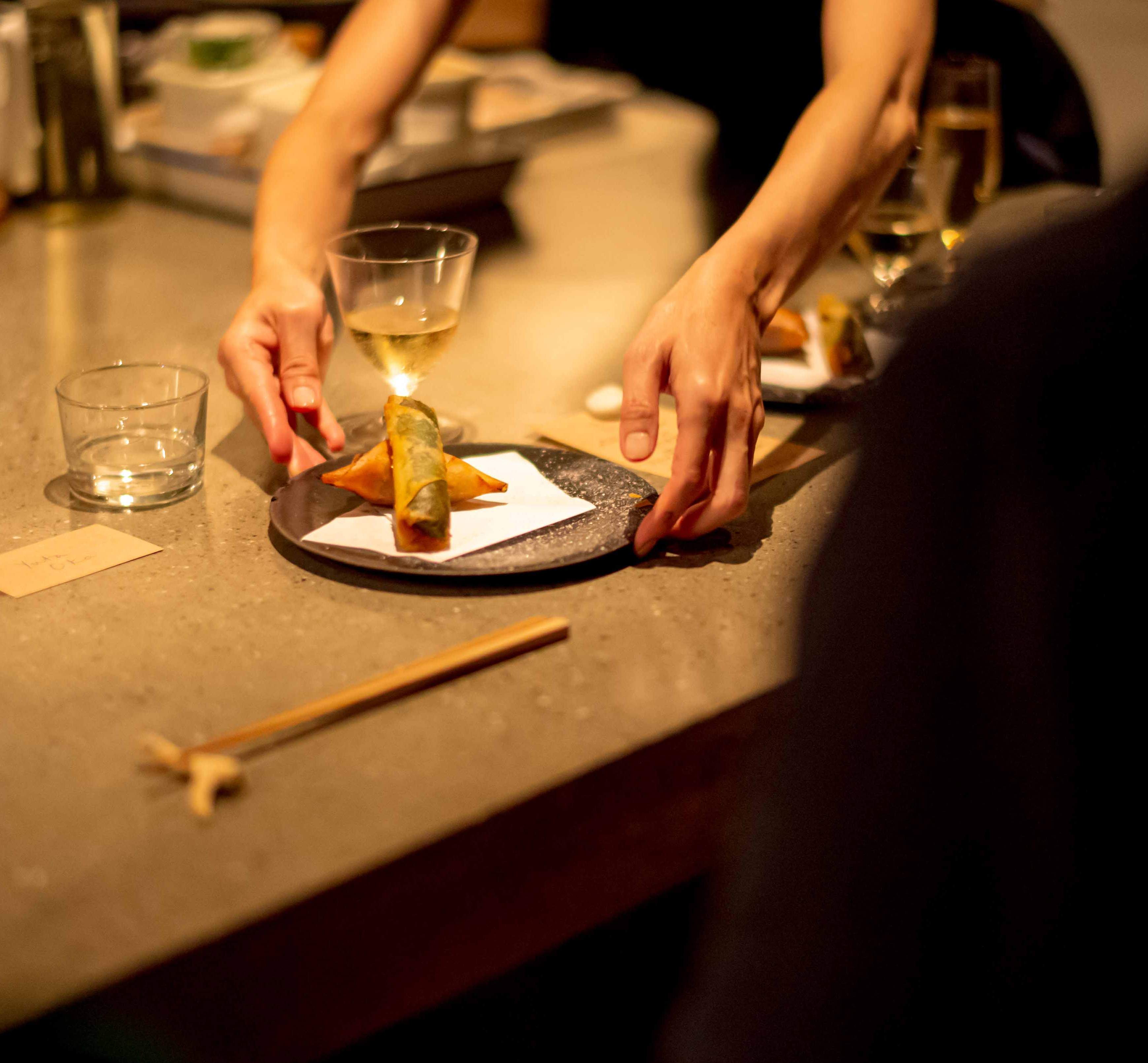
SETTING PRIORITIES
Ari: The traditional corporate track is not the only option. My work is to draw out the entrepreneurial mindset. That can be a significant transition, especially for mid-career women in their forties or older. Often they have spent years thinking that they have to be authoritative and “masculine”; they don’t know that there’s another way. I try to show them a different type of leadership.
Yuta : I was impressed with what Naoko-san said: it’s difficult to only work one day a week but she’s still ambitious. I’m inspired by that.
Cynthia Usui : It is a personal choice. Work-life balance is really important when you’re bringing up your children; just ask women in their thirties and forties. But if you ask women like me, who are in their sixties? To hell with work-life balance! Why is society telling me to prioritise my work-life balance? I’m happy to pick up the slack for women who need to raise families. We need to change the narrative. Diversity should mean that each and every woman can weigh the choices in front of her and make a decision. Do you know what my pension will be at the age of 65? Just ¥80,000 (€560). That’s where I lose out. But I’m happy that I stayed at home and can work until I’m 70 to supplement that ¥80,000. So, it’s about people being free to make choices and being aware of the risk of those choices.



CHANGING THE LANDSCAPE
Ari: People are looking for balance and creating change. The new generation of women is realising that it’s not worth going back to a job where the work or corporate culture isn’t understanding. More than 80 per cent of young people in Japan are not hopeful about the future. In the US, on the other hand, almost 70 per cent are hopeful. Young women have grown up seeing the Japanese corporate world through their parents and they don’t feel positive about it.
Mari: Yes, there’s a generational gap but this can also drive change. If you look at women who are under 25, you’ll see that they have completely different values to older generations. I’ve been running leadership workshops for young women for the past five years. When I started, I thought that to run for office in Japan, you need to have connections and money so it probably won’t appeal to most young women. This year, the landscape has completely changed. Most applications came from women in their twenties. They’re mentally ready to run for office. They are already committed to social action; they are fundraising and campaigning. Politics is just an extension of what they’re already doing in their life. There’s a new attitude and I feel so hopeful.
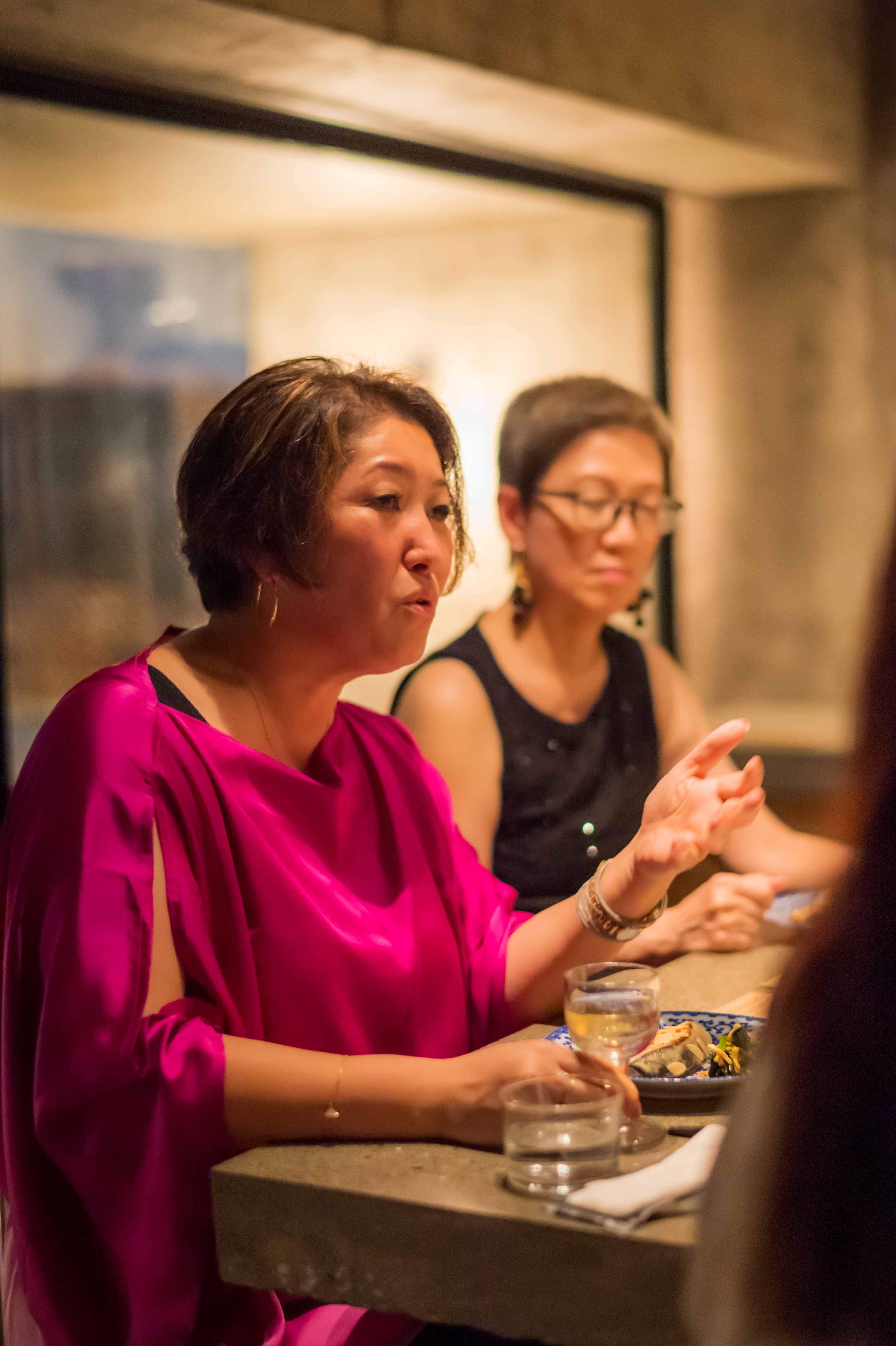
Kathy: I’m supporting initiatives promoting young women who are aspiring to be politicians. One of these consists of launching a unique public-leadership training programme and it has already attracted many applicants from diverse backgrounds. That generation’s interest in politics is quite high. They’re not necessarily aiming for the Diet [Japan’s parliament] but for their city and prefectural councils. That’s where one often starts. I’m very encouraged because these women are generally dissatisfied with the state of things and they feel empowered to effect real change within their communities.
Mari: We have to remember that Tokyo is very different from rural areas or smaller cities. Women in those places haven’t necessarily felt able to speak up in the same way. What I have to do is create a safe, cosy place and give them positive feedback. Then people want to talk more.
Kathy: I am a venture capitalist now and am observing more young Japanese women opting out of the big-company career path. They might start off working at major corporations but after a few years they’ll say, “My friend has an exciting start-up and I’m not married yet, so I can afford to take a risk.” Often they are motivated by a pain point that they have experienced and want to help create an innovative solution. Surveys suggest that many Japanese people aren’t optimistic about the future of the country. I think that’s because Japan is trying to run a marathon on one leg. Womenomics has been my life’s work. I believe that women are this country’s secret weapon and I see a huge upside for the economy and society if we can unlock this potential.
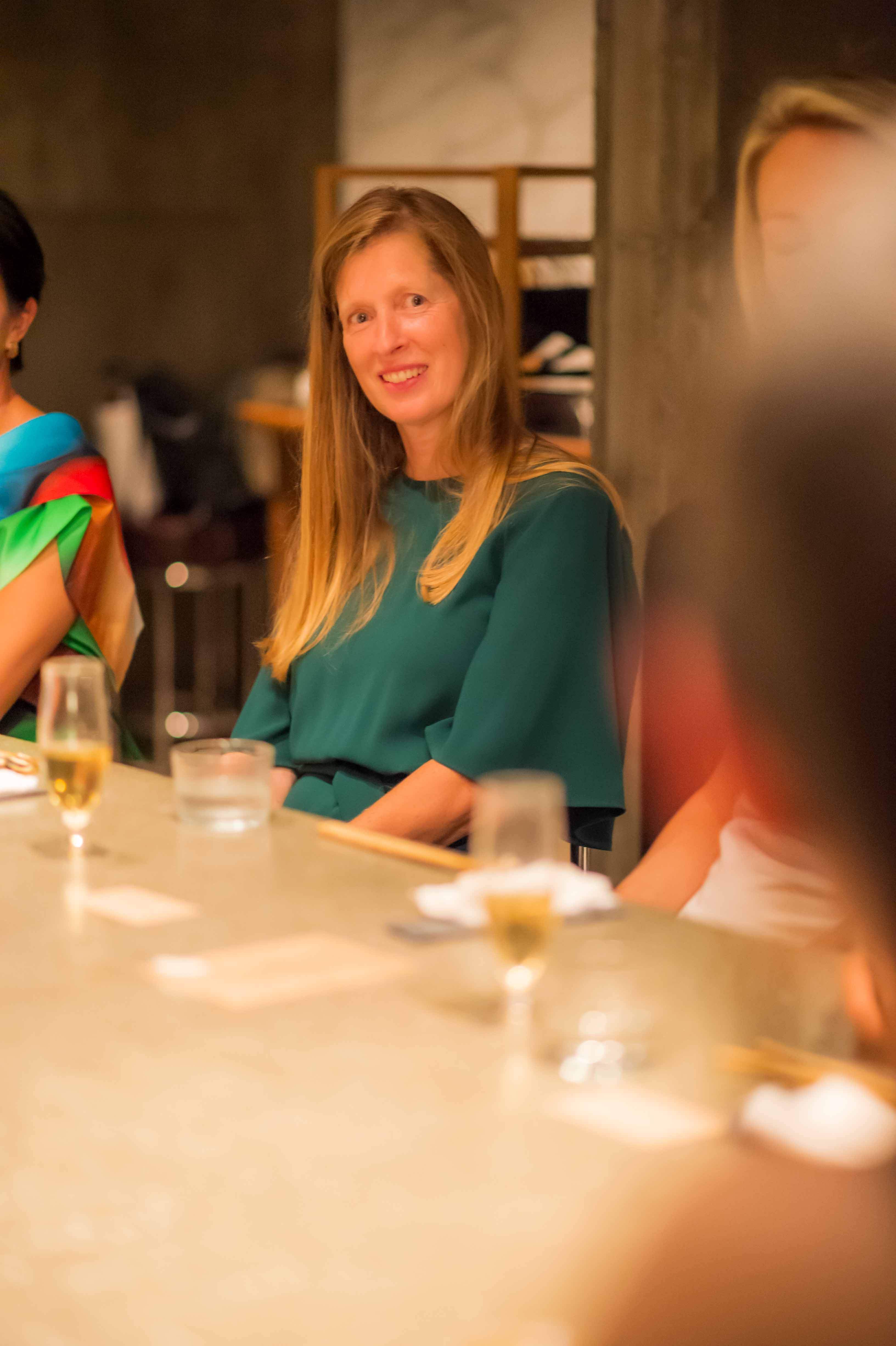
Fiona : It’s not just an issue for women but for men too. Government has a role to play in helping people shape the way that they want to work. For example, Japan has very generous paternity leave but men aren’t taking it. Progressive legislation will not work if society or corporate culture doesn’t allow it.
Cynthia Hansen: Indeed, we need to ensure that government, business and communities work together to create lasting solutions. This evening we have heard about the need to value skills differently, allow alternative pathways to advancement, support more personal choice and encourage women to take an active role in changing the world of work. We look forward to continuing this crucial conversation.
